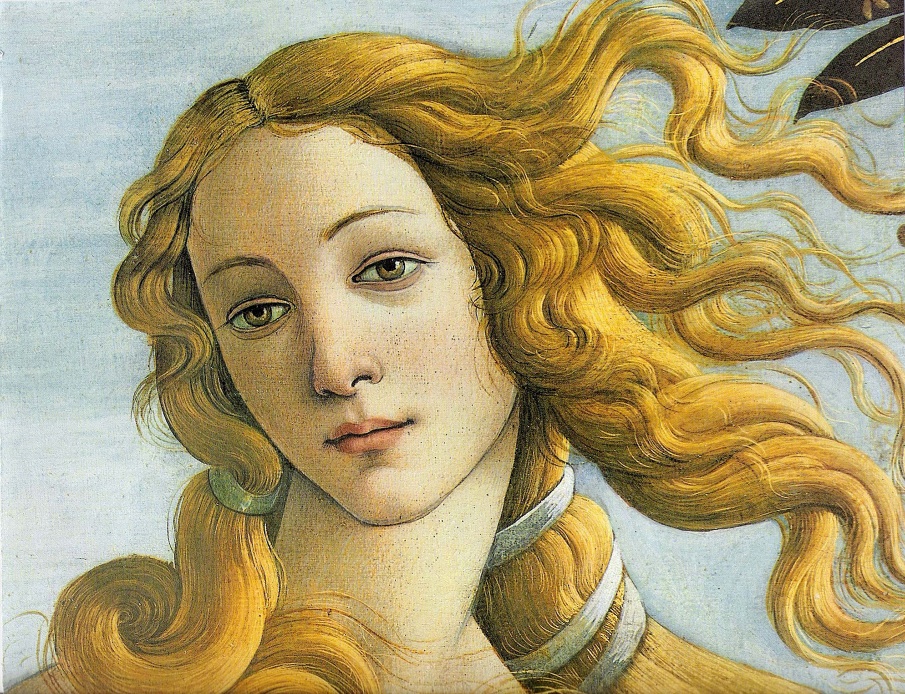
The earliest Greek myths recount the emergence of the cosmos through a violent act of separation. The unity of all things was broken when at the urging of his mother, Gaea, her son Kronos forever divided his parents by cutting off the generative organs of his smothering and possessive father, Ouranos. Thrown into the sea, those organs engendered Aphrodite, goddess of love (pictured above). From that point forward, the mythology goes, the Olympians and all creatures emerged.
Greek myth mirrors our conception of the “Big Bang,” a cosmic act of creation so violent that it created time and space, just as the separation between Ouranos and Gaea allowed room for successive gods and humans to arise. Our very being, believed the Greeks, carries resonance from that first separation just as cosmologists suggest the Big Bang still resonates through everything. Gravity and quantum entanglement, for example, are universal.
As the many Greek gods and nature itself propagated within the space of separation, so innumerable forms of matter and energy propagated within the space of the Big Bang; our most ancient creation myths reflect modern scientific understanding of the origins and nature of the universe. All and everything was born from an explosive state of agitation; no wonder it’s so hard to relax.
The forces inside each of us are very, very old, and the matter of which we are composed goes back to the beginning of time. The so-called “singularity” or undivided, uncreated universe devoid of time or space prior to the Big Bang works within us, alongside the workings of separation. In this way, we each are the same and different, simultaneously particular and universal expressions of the primal forces calling us together and casting us apart.
Psychologically, this makes being human quite confusing and uncomfortable. We need and want to get along with others, but our impulse towards unity and cooperation runs up against our impulse towards autonomy and competition. Human society, accordingly, is unstable and subject to cycles of violence and upheaval. We crave peace, but find it elusive, spending untold billions on weapons designed to kill each other.
Some believe war-and-peace is a spiritual matter, but historically, organized religion has and continues to engender war, not peace. Politics is seen as the ultimate solution by some, but regional and cultural habits continue to prevent the imposition of global solutions to conflict. Perhaps we must honestly, though uncomfortably, admit that war is primal; it’s peace that’s hard to find.
If we accept that the impulses of separation and unity are at war within us, we might be able to better accept the truth of our situation. Society reflects our most elemental individual psychological struggle. Genetic memory combines with cultural memory; we each emerge into a pre-existing system that has been in continuous operation since the beginning of time itself.
Denial only takes us to the limits of hope and fear; neither hope nor fear alone, however, change the course of human history, change requires action. Action can be words, music, dance or as simple as doing the dishes. The universe entices us to action; how we respond to those entreaties defines what it means to be fully human.
The Greeks created a mythology of gods-in-conflict and relaxed by singing songs of war, but like peace, relaxation is just a temporary refuge from the primal war within ourselves.